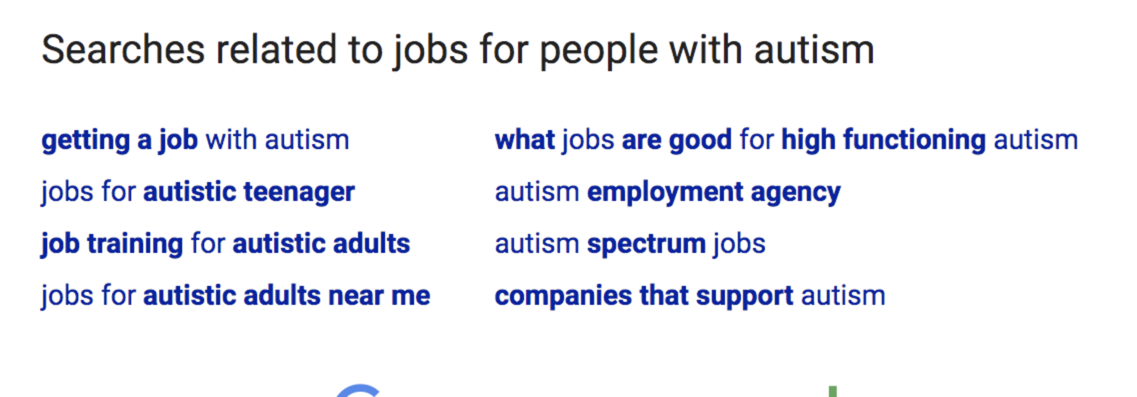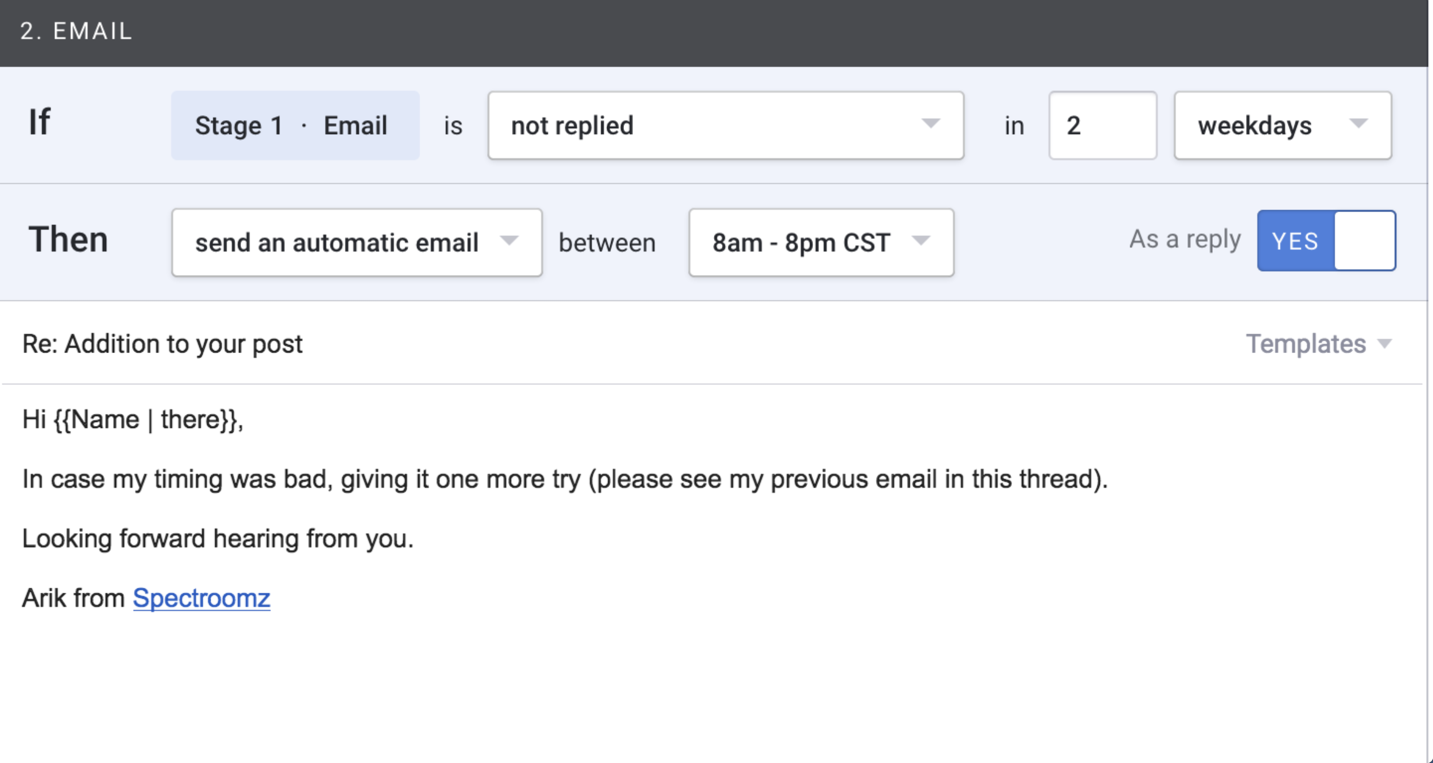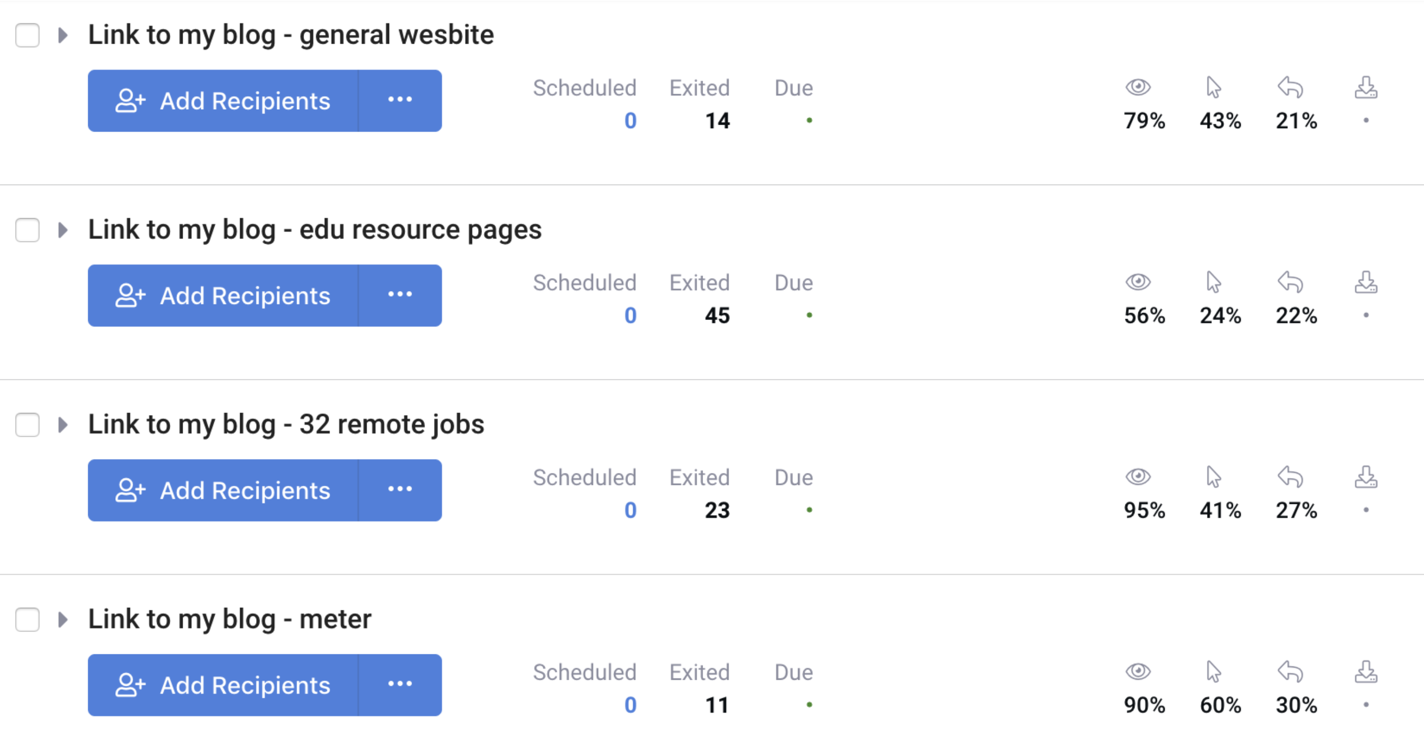My Go To Market strategy example will help you develop yours
By: Arik Marmorstein, Spectroomz founder
About Spectroomz: Spectroomz lets you and your team hire an online researcher so you can take smart, research-based, decisions without losing focus on where you are really needed.
This is a blog post following a talk I gave recently to WeWork startups, which was rated as highly practical by both B2B and B2C founders. I review my go to market strategy launching Spectroomz (an autistic-friendly freelancing platform focused on SEO and content services) these days using lean marketing. Below you’ll find a list of tactics and examples that will help you develop your go to market strategy.
My background:
2011-2017 Bootstrapped a crowdfunding platform >> US$ 9M raised in 5,000 campaigns.
2018-2019 - Head of Growth (not a founder) at Guggy (YC and Softbank backed), grew three B2C apps with a minimum budget.
When you launch a new product into your target market you should have a strategy to get your first customers (or users). You have made a lot of assumptions and the best way to test those is by getting people to try your product as soon (and as lean) as possible. Your goal is to get to product-market-fit, which means that the people you are reaching out to want what you offer and get real value from it. Many startups and businesses in this phase don’t have money from investors because they haven’t proved people want what they offer yet, as well as lack revenue because they haven’t launched yet. Under these circumstances, I’ll show you how I developed my GTM strategy and what free tactics I used.
How to develop your marketing strategy - Figure out your focus first
Every business has it’s own “success equation”. On one side of that equation, you have your goal, how you measure yourself (usually it’s revenue). On the other side of the equation, you have the path to your goal. What needs to happen in order for you to get to your goal. Let me show you my equation.
Freelancing projects completed (which lead to revenue) = autistic freelancers + clients + make a good match.
My marketing efforts focus on the right side of the equation, on each specific element. If I’m doing something that doesn’t focus on either, I’m doing something wrong.
Also, I had a chicken and egg problem. Clients won’t use the platform if there are no freelancers, and freelancers won’t sign up if there are no clients, right? Wrong. Usually, when you launch a platform, there is one side to which you solve a bigger problem. In my case, autistics are significantly unemployed comparing to neurotypicals, and therefore they were willing to sign up before clients did. That’s why my go to market started with them and then moved to the clients.
8 tactics you can use in your go to market strategy
1) Content Marketing (to get freelancers sign up)
6 months ago I didn’t have too much experience with SEO and content marketing (which means you can do it as well). While it requires relatively a lot of time, it won’t require a lot of direct expenses, and you will be building assets that last much longer than other marketing channels.
There’s a lot of content about SEO and content marketing (check out Ahrefs and Backlinko), but to make it simple it’s basically about creating valuable content and get other sites to link to it (there is much more, but if you do that, you should have a good start).
Phase 1 - initial keyword research
I start by Googling the keywords I had in mind and see what Google suggests while I type, as well as below the results
Then, I take the results and use Ahrefs’ keyword research tool to investigate further (it’s a paid tool, but it’s probably the last tool I would give up on, even in these COVID days). You can see I typed “jobs for people with autism”, and below you see the parent topic is “jobs for autistic people”. That means that if I target the parent topic, it will include the term I typed as well. In addition, you can see (pink rectangle) that I need around 29 backlinks in order to rank in the top 10 results for that keyword I’m typing (Google 1st or 2nd page). It’s good to have a goal.
After getting the parent topic, Ahrefs enables you to search for low-competition keywords that have traffic (you can filter by the monthly minimum traffic you are interested in and by KD, which stands for keyword difficulty). It means I’m trying to find long-tail traffic at the moment since it’s easier to rank for.
Below you can see the results of my long-tail keywords. You can see some of them are pretty easy to rank for. In addition, the CPS column stands for “clicks per search”. This should be >1. Some terms trigger some Google snippets (like “time in PST now”) and people don’t actually click any website. You don’t want to target low CPS keywords.
I use 14 additional tactics, but the above should give you a good list of relevant keywords.
Spectroomz now offers advanced keyword research services.
Phase 2 - Create (better) content
Either by researching Google or using Ahrefs (or another SEO tool like Moz), find content for to keywords you plan on targeting. Then, create better (or different) content. Here’re are a few examples of what I have created, which can definitely give you some ideas to your own content.
32 remote jobs for autistic people, test which one fits you - this post includes a quiz (created using Typeform) that asks you a few questions and tells you what kind of remote jobs are more suitable to you as an autistic person. While you can get the result without entering your email, you can get the questions, answers and optionally freelancing opportunities to your email if you choose so. Once you provide your email, I’m using Zapier to connect between the form submission to my Gmail and send you everything. I also offer you in this email to sign up and as an autistic freelancer, and I have seen 13% conversion rates so far between those who took the quiz to those who registered directly following this email.
3 startup/tech jobs for autistic people - this post is highly informative and includes links to online schools and bootcamps that can teach you how to get the skills you need for these jobs. I don’t want to create low-quality content and the time on site and low bounce rate are important to me.
The lean autism at work guide to hiring your first autistic employee - this article was also featured on HackerNoon. I took the Autism @ Work guide (a 60-page guide on how to hire autistic employees, as practiced by big corporations like Microsoft and SAP), and created a leaner version of it (both in length, but more importantly, in practice) so it will fit much smaller companies who are looking for more diversity. I even included a Trello board template with all the tasks.
Phase 3 - Get Backlinks to your content
I have used 3 main tactics to get backlinks.
1) Find similar content and reach out to whoever linked to it
I can do this by using Ahrefs’ Content Explorer tool (or Moz’s. SEMRush etc.) and see what are the top articles for the keywords I’m targeting. Here’s what you get when you search Ahrefs:
You can see this article has 50 referring domains. These are websites with content relevant to the keyword I’m targeting. Ahrefs enables you to see exactly the articles that linked to this article (and the context - each site linked to it in a slightly different context) and export a list of these sites.
Then, I hired a freelancer to find me the relevant emails of the websites I wanted to reach out to. Once I had the list of emails I created an email sequence (I use and reviewed Mixmax here). Here’re the emails I sent:
If they didn’t reply I automatically sent this one:
If they didn’t reply I sent the last one
Here are the open and click rates:
I usually see a 4%-7% conversion rate, meaning 4%-7% of the sites I reach out to link to my blog.
Spectroomz now offers the We Own Your SEO package, in which, well… we own your SEO and content marketing (keyword research, content creation and backlink generation).
2) Guests posts
Sites like HackerNoon enable you to submit content (even content you already created and published on your blog) and if they publish it you get a do-follow link to your site (there are two types of backlinks, a do-follow is the one that has more effect on your SEO, and a no-follow which is less valuable). Here’s my post on HackerNoon.
3) HARO (Help A Reporter Out)
Reporters post requests for comments, links, quotes for their upcoming articles, to which you can reply. Below is an example of one of the daily emails you get:
2) Getting clients to hire freelancers using SEO and content marketing
Shortly after Spectroomz’s launch, COVID-19 became a reality. Reaching out to companies offering them to hire freelancers simply didn’t work. The solution was to prepare for the day after by creating content assets that are or will be interesting for potential clients. It’s not content that directly relates to the services Spectroomz offers, but rather content that’s relevant the what Spectroomz’s potential clients are interested in their regular course of business (Zapier and Oberlo are doing that very well in my opinion).
The process is similar (finding long-tail keywords, writing content and spreading it).
Here’re a few examples for such content:
How to start a business with no or little money - following the 2008 recession many people who lost their jobs started a business because they couldn’t find a new one. These types of entrepreneurs don’t hire full-time employees and use freelancers. The post includes a template for how to talk to users and an idea evaluation tool, both generating leads.
Tools - Sparktoro review, HelloSign vs Docusign - entrepreneurs use email marketing tools, as well as e-signature tools. Look for such tools that are relevant to your clients and review or compare them (I’d focus on those with low keyword difficulty).
Things you know - how does crowdfunding work - create content in the intersection of your knowledge (even from previous jobs) and your client interest. I previously owned and operated a crowdfunding platform. Crowdfunders need freelancers before and during their campaign, so I have created a very comprehensive guide which also includes access to reward ideas and a crowdfunding bot when you subscribe (generating leads).
Autistic-Friendly Employer Meter - this is another quiz (academic research-based) that gives you as an employer an idea of how autistic-friendly are you and offers you to get relevant content.
Example - Oberlo
Oberlo is a dropshipping tool that integrates with Shopify (when someone buys on your Shopify store, you buy on AliExpress using Oberlo and cuts a profit). Their potential and current customers are marketers who need tools to create compelling ads (whether it’s for their dropshipping efforts or other ventures). That’s the reason most of Oberlo organic traffic comes from the keywords “free video editing tools” to an article they wrote about it.
Ways to create additional content
Let your users create guest posts (or even hire them to do so).
Curate top Reddit posts that are relevant to your users. For example, I saw the term ‘Reddit Aspergers’ is highly searched and doesn’t have a lot of competition, so I have created “5 Reddit posts about Employment and jobs for Aspergers and autistics”.
Search Google Scholar for academic research that are relevant to your users, and summarize them in a compelling way.
Spotify Playlist - This is a great way to engage your users. I have just recently created the collaborative neurodivergent playlist, and my autistic subscribers add songs to it.
3) Newsletter
Collect emails via your site, and lead generation content. Then, send a newsletter using tools like Substack (free), Mixmax, ConvertKit or Mailchimp (I don’t have a good experience with them, but I guess many do).
4) Online Events
You can reach out to workspaces like I reached out a WeWork contact and offer to have a similar event to the one I conducted by providing (hopefully) valuable knowledge. It depends on your line of business but generally, try to find a place that serves many of your potential clients and offer to make a Zoom workshop.
Another type of event is simply online events to directly offer your product or service to potential users. You can follow all the steps we have done here (back when I was Guggy’s head of growth), and make the event online. Here’s a link to the entire process of how we solved the chicken and egg problem using events (including email screenshots, stats, and a special Spotify hack).
5) Good Ol’ Cold Email
If the timing makes sense for you, find a relevant source (it could be a directory of potential clients, Twitter’s page followers, Linkedin contacts), hire a freelancer to find the emails, use tools like Mixmax, Yesware, Mailchimp or other to send a sequence of 3-5 emails (you can call them email funnels). I, for example, sent a cold email to startup accelerators, requesting them to circulate Spectroomz among their companies. I got several companies to post projects following that move (thanks TechStars).
6) Free PR
Here I explain how to get media coverage (including screenshots that got me on FastCompany, TechCrunch, EliteDaily). I explain how to find the emails and walk you through the entire process. Please note doing your own PR is highly time-consuming and I’m not sure it makes sense if you don’t have product-market-fit.
Here’s the example of the email that got my pet project on TechCrunch:
7) Influencer Marketing
Usually, this isn’t a good tactic if you don’t have a significant budget (see how to do influencer marketing for more information, which is also content I created to serve potential clients). However, I reached out to autistic influencers asking them to endorse Spectroomz in order to get autistic freelancers signed up. I also reached out to bloggers and with 92% open rate and 69% reply rate (3 emails sequence) I got several of them to endorse Spectroomz. This is the email I sent them:
Use this tactic if you think you can find relevant influencers who would really connect to your product/service. Influencers usually see $ (that’s okay, it’s their job), and since you are bootstrapping they need to get an emotional reward instead.
8) ProductHunt and Show HackerNews
If this audience is relevant to you go ahead and post on these sites as well. If you are featured on ProductHunt, you’ll get a do-follow link from a high-authority site (regardless of your upvotes) and of course, you might get a huge amount of traffic if you are popular. As for show HN, just make sure to follow their guidelines.
Prioritize your tactics
For each tactic, decide how impactful it may be, and how complex to execute. Aim for high impact, easy execution. Learn from each tactic you use, write to yourself what you have learned and whether you should use it again or not. Make short tests for each tactic.
















